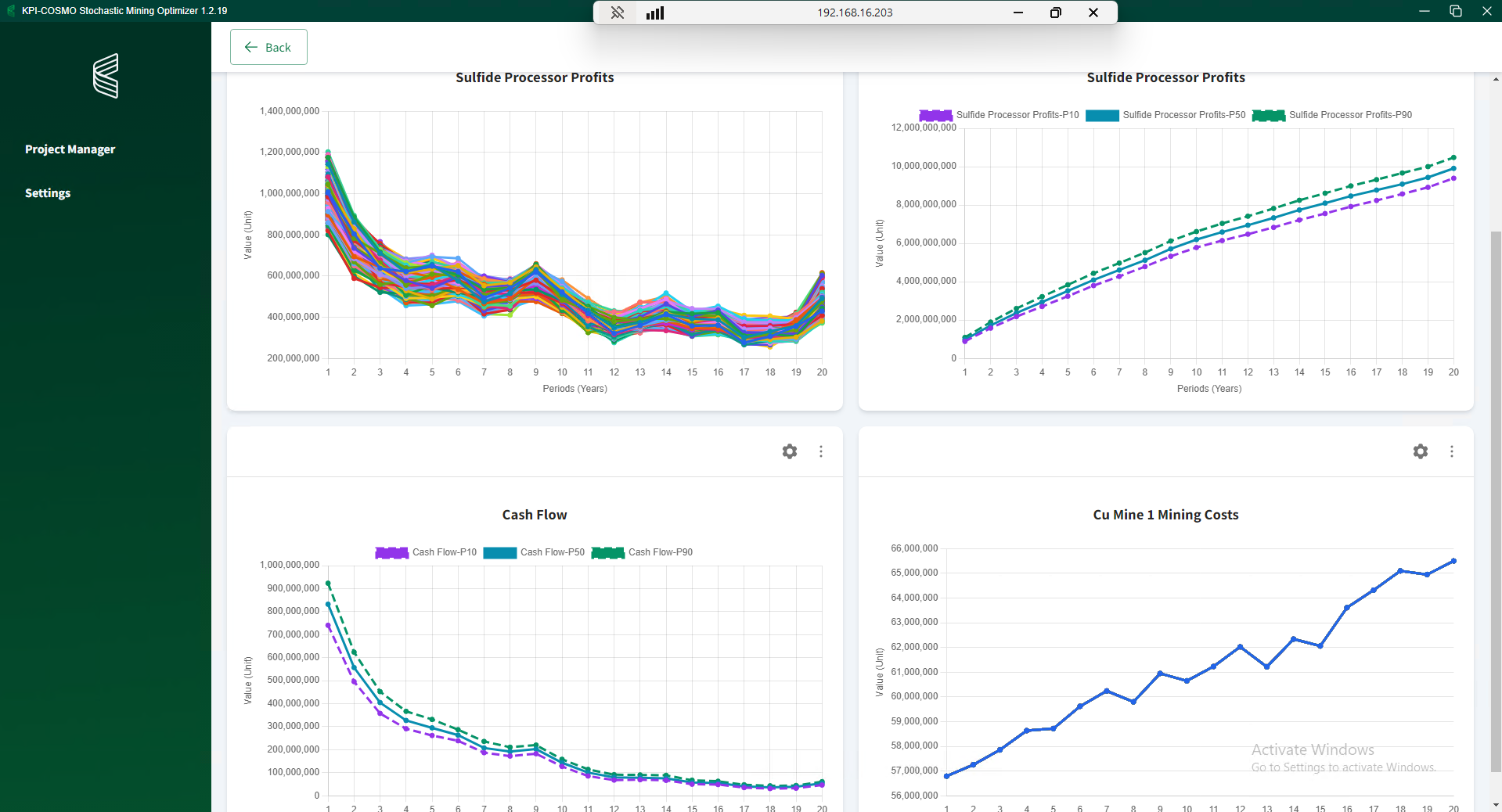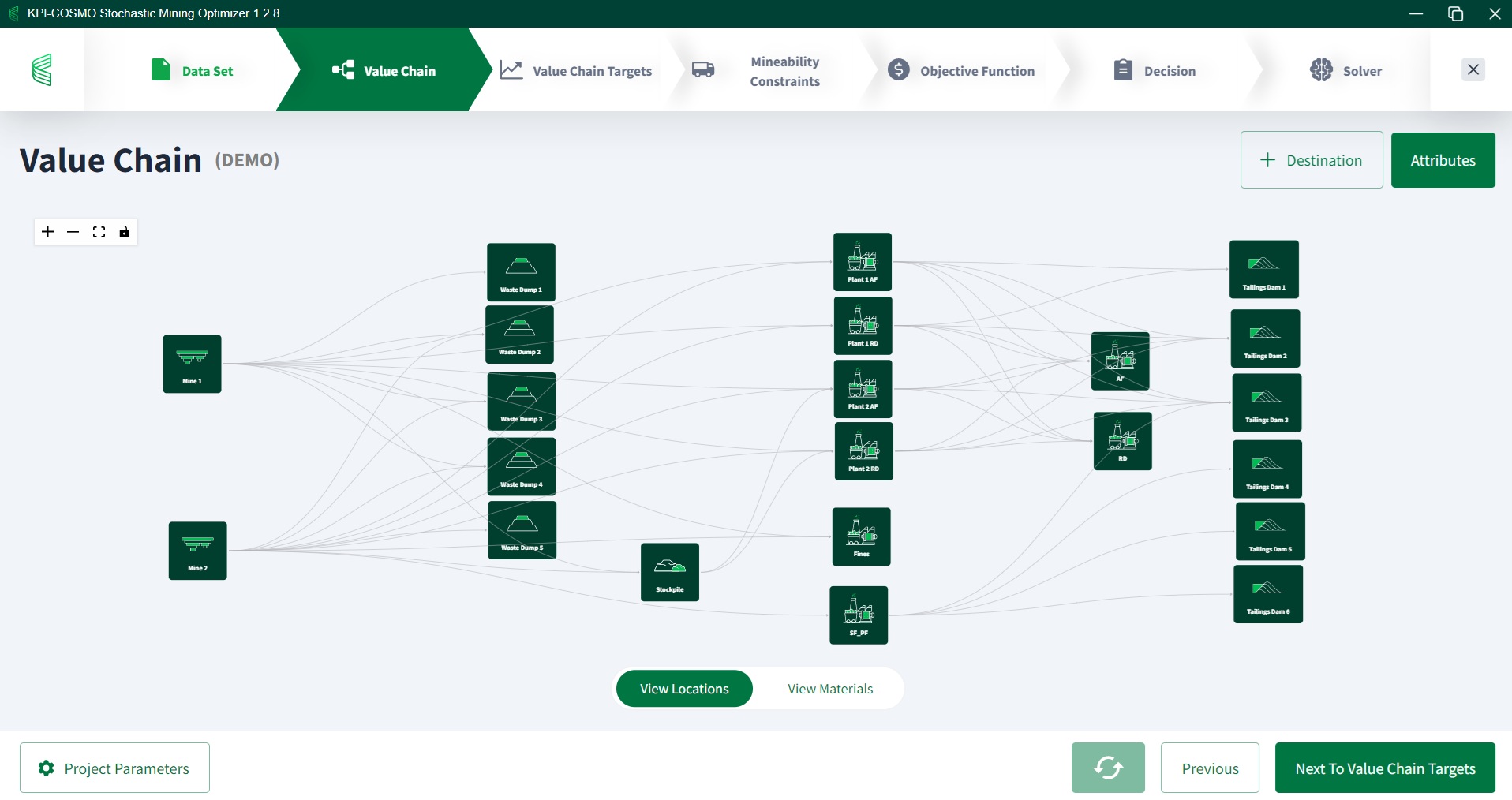In a mining industry undergoing profound transformation—facing growing demand, increasing complexity, and stricter environmental requirements—the precision of geological models has become a strategic lever. It is in this context that KPI Mining Solutions, a Montréal-based company specializing in artificial intelligence and advanced analytics, is launching an innovative project in collaboration with the COSMO Laboratory at McGill University.
This project focuses on developing a data and hypothesis processing module, including the required geological simulations, integrated into the stochastic mining optimization platform KPI-COSMO. This new component will enable mining companies to better integrate geological uncertainty into long-term strategic planning, leveraging probabilistic data, artificial intelligence algorithms, and geospatial datasets in a more efficient and scalable way.
KPI Mining Solutions, a division of its parent company KPI Digital, is recognized for digital solutions that combine data science, cloud, security, and operational optimization. With its KPI-COSMO initiative, developed in partnership with McGill’s COSMO Stochastic Mine Planning Laboratory, the company has already demonstrated its ability to advance mining optimization tools.
The new data, simulation, and hypothesis processing module enhances the KPI-COSMO suite by adding a critical, realistic, and flexible layer of geological analysis and other parameters, designed to better address the challenges posed by the natural variability of deposits.
KPI Digital is also collaborating with IAMGOLD to validate and deploy this new geological simulation module under real operating conditions. This collaboration anchors innovation in the operational needs of a major gold producer, while strengthening the credibility, robustness, and sustainability of mining strategic planning.

According to the World Mining Data 2023 report, global production of metallic minerals increased by 22% between 2010 and 2022, largely driven by growing demand for critical minerals such as lithium, copper, and nickel—at the heart of energy transition and electrification.
In Canada, the mining sector reached a production value of $62 billion in 2022, a 20% increase in one year. The country ranks among the world’s top five producers of 17 strategic minerals and metals. Yet mining projects are becoming increasingly complex geologically, economically, and regulatorily.
Despite growing digitalization, more than 70% of mining companies still use deterministic and sequential approaches for planning (McKinsey, 2020). These methods overlook inherent deposit uncertainties and often result in unrealistic production plans or misaligned investments.
The KPI-COSMO module addresses this gap by offering integrated probabilistic modelling from the earliest planning stages.
The probabilistic data processing module enriches the KPI-COSMO platform with key functionalities:
Generation of Geostatistical Simulations
Using exploration drilling data, the module generates probabilistic models representing uncertainties related to grades, deposit geometry, and subsurface physical characteristics. These simulations allow the evaluation of multiple scenarios rather than relying on a single “average” version of the deposit.
Integration of Geospatial Datasets
The module incorporates a variety of geospatial data, including:
Geotechnical zones
Topography
Cost constraints
Existing mining infrastructure
This contextual approach enables the creation of geological models more faithful to operational reality.
Model Validation and Automated Workflows
An integrated validation system ensures data consistency upstream of planning. It includes verification, automation, and quality control tools to facilitate the deployment of models in production.
The module’s development spans seven months, from April to October 2025, through successive and partially parallel phases:
Development of AI algorithms to enhance stochastic optimization of mining operations
Deployment of cloud infrastructure and authentication tools
Design of user interfaces and data processing modules
Development and deployment of geostatistical simulations
Validation of models using real-world data in partnership with mining sites
Integration of the module into the KPI-COSMO platform
Internal training, client deployment, and international commercialization
Funding is allocated to five main cost categories:
Development of artificial intelligence algorithms
Deployment of the platform and security modules
Creation of geostatistical simulation engines
On-site client integration
National and international commercialization

By integrating geological uncertainties at the earliest stages of planning, the new KPI-COSMO module enables mining companies to:
Develop more realistic and flexible plans
Better manage operational and financial risks
Optimize investment decisions
Improve the credibility of long-term forecasts
This approach supports more efficient capital allocation, greater resilience to unforeseen events, and stronger alignment with ESG requirements.
The KPI-COSMO project fully aligns with MISA Group’s vision of accelerating the digital, sustainable, and intelligent transformation of the mining industry. Through its expertise in advanced analytics, its Québec roots, and its international reach, KPI Digital exemplifies Québec’s mining innovation capacity.
This project:
Showcases data science applied to the extractive sector
Strengthens ties between academic research and industry
Supports the transition to integrated, stochastic planning
Contributes to Québec’s global technological showcase
With the development of the KPI-COSMO geological simulation module, KPI Digital delivers a concrete response to one of today’s major mining challenges: integrating uncertainty into strategic decision-making.
By transforming how deposits are modelled and interpreted, the company helps build a more precise, predictable, and high-performing mining industry. This innovation marks a new step toward intelligent, connected, and sustainable mine planning.
– Until February 20, Corem and…
A reflection presented by MISA…